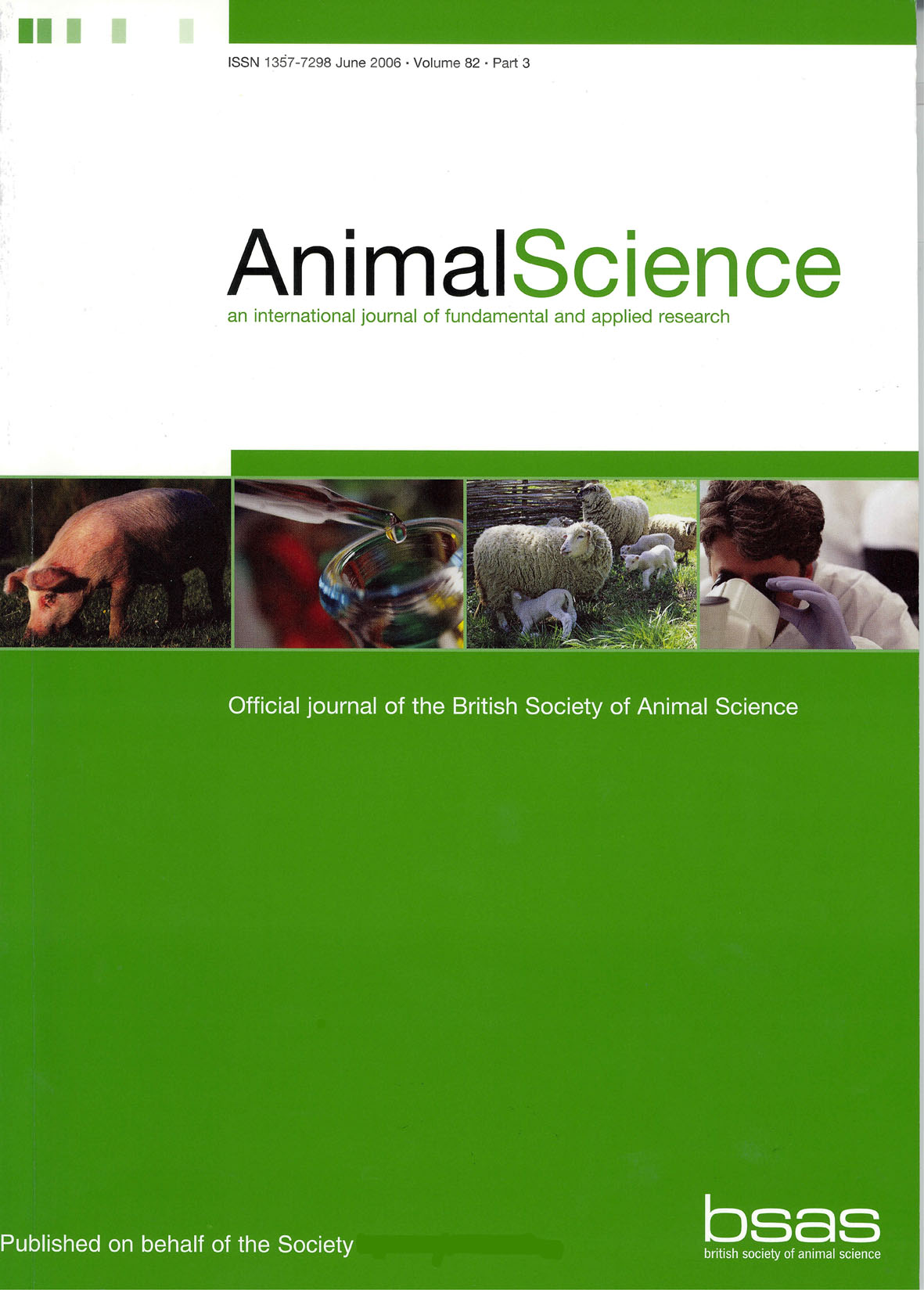Article contents
A comparison of defluorinated rock phosphate and dicalcium phosphate, in diets containing either skim milk powder or soya bean meal as the main protein supplement, for early-weaned pigs
Published online by Cambridge University Press: 02 September 2010
Abstract
Thirty-six pigs were weaned at 21 days of age and were given diets supplemented with either dicalcium phosphate (DCP) or defluorinated rock phosphate (DFP) from 4 weeks of age until slaughter at 50 kg live weight. From 4 to 9 weeks of age the diets contained either skim milk powder (SKIM) or soya bean meal (SOY) as the main protein supplement. The dietary treatments were arranged in a 2 × 2 factorial design. From 9 weeks of age until slaughter, SOY was the only protein supplement used. Four 7-day measurements of phosphorus, calcium and nitrogen balance were made on each pig. Faecal endogenous P was estimated in two pigs per treatment by the 32P dilution method.
There were no significant effects of P supplement on performance or on apparent absorption, true absorption or retention of P. The apparent absorption and retention of Ca were both 0·07 lower with DFP than with DCP in the period from 9 weeks of age to slaughter (P< 0·001).
From 4 to 9 weeks of age there was no effect of protein supplement on performance. From 9 weeks of age to slaughter, when all pigs were given SOY, those which had received SKIM in the previous period grew slightly faster (P<0·05); their growth-rate overall, from 4 weeks of age to slaughter, was also significantly better (P <0·05).
Pigs given SKIM showed a higher apparent absorption of P (P < 0·001) and higher apparent absorption (P<0·01) and retention (P<0·001) of both Ca and N from 4 to 9 weeks of age. Again, there were carry-over effects in the period from 9 weeks of age to slaughter, although the trends observed in the first period were reversed; pigs previously given SKIM showed significantly lower apparent absorption and retention of both P and Ca, and apparent absorption of N, than those previously given SOY.
There were no significant effects of dietary treatments on the ash, Ca or P content of the fourth metacarpal.
- Type
- Research Article
- Information
- Copyright
- Copyright © British Society of Animal Science 1981
References
REFERENCES
- 9
- Cited by


